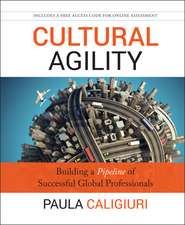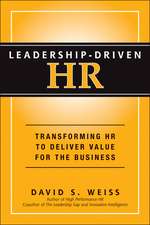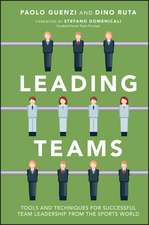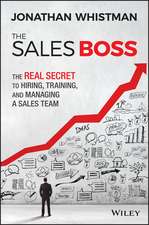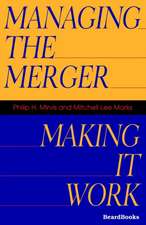Charging Back Up the Hill – Workplace Recovery After Mergers, Acquisitions, & Downsizings
Autor ML Marksen Limba Engleză Hardback – 13 feb 2003
Mitchell Lee Marks (San Francisco, CA) is an independent management consultant specializing in helping firms plan and implement mergers, restructurings, and other transitions. He also consults in areas of CEO coaching, senior team development, HR development, and corporate culture. Previously, he was senior director at Delta Consulting Group and national chair of the HR Management Practice Group at William H. Mercer, Inc.
Preț: 289.03 lei
Nou
Puncte Express: 434
Preț estimativ în valută:
55.32€ • 60.11$ • 46.50£
55.32€ • 60.11$ • 46.50£
Carte disponibilă
Livrare economică 31 martie-14 aprilie
Preluare comenzi: 021 569.72.76
Specificații
ISBN-13: 9780787964429
ISBN-10: 0787964425
Pagini: 304
Dimensiuni: 162 x 236 x 25 mm
Greutate: 0.64 kg
Editura: Wiley
Locul publicării:Hoboken, United States
ISBN-10: 0787964425
Pagini: 304
Dimensiuni: 162 x 236 x 25 mm
Greutate: 0.64 kg
Editura: Wiley
Locul publicării:Hoboken, United States
Public țintă
Corporate leaders, managers and consultants – anyone whose company has survived difficult economic times.Cuprins
Descriere
Shows team leaders, senior executives, human resource directors, and consultants how to get jaded employees back on track, carry them through transition and re-motivate them. This book provides advice on "transition management", and discusses recovery after transition, approaching the new, and creating a context for recovery.







